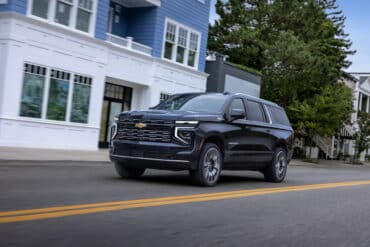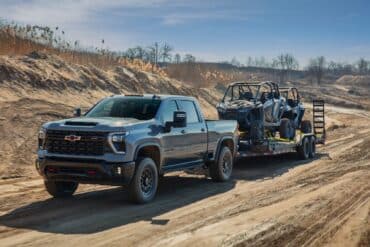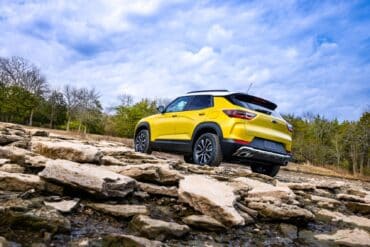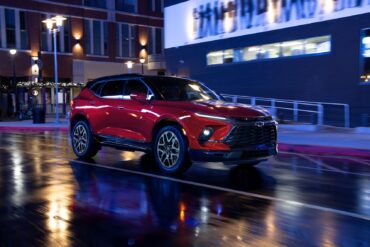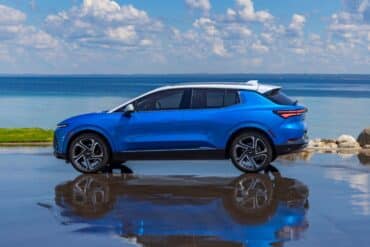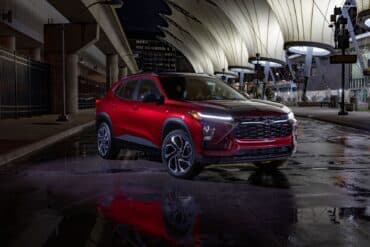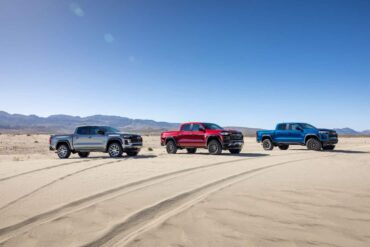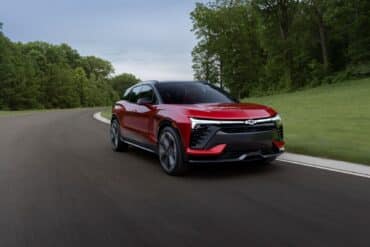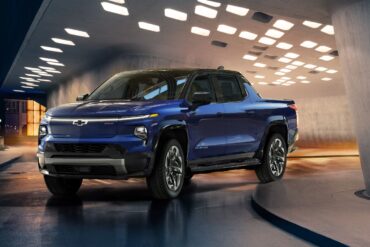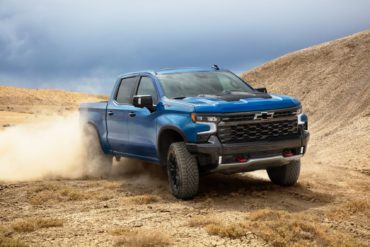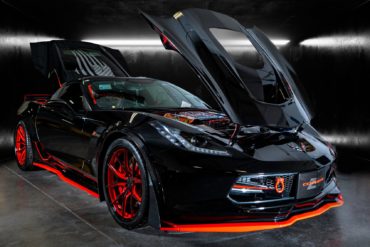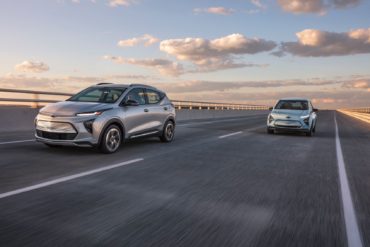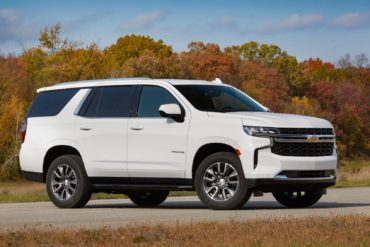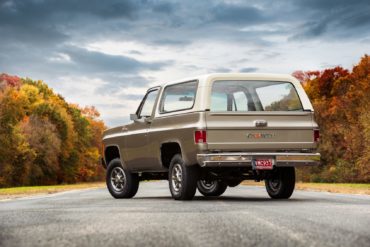The 2024 Chevy Silverado 1500 is available in multiple trim levels, from the more basic to the more luxurious and off-road focused.
Chevrolet

Chevrolet (a.k.a. Chevy) is one of the world’s largest automakers with global sales topping an average of four million per year. Trucks and SUVs, like the Silverado and Tahoe, are top-sellers for Chevy, but the automaker is regularly investing in electric vehicle platforms like the Bolt EV.
Enthusiasts will gravitate toward the Corvette or Camaro, while more sensible buyers will opt for something like the Malibu or Equinox.
The 2025 Chevy Suburban is about 15 inches longer than the Tahoe and offers 16 cubic feet of storage room behind the third-row seats.
Chevy has redesigned its chart-topping Tahoe SUV for the 2025 model year. It remains part of the twelfth-generation model that...
The pumpkin is the quintessential Halloween decoration and the subject of a fun study and infographic from GMPartsOnline.net. The McAllen,...
The truck-like design of the 2024 Chevy Traverse is the first thing people will likely notice about the newly-redesigned midsize...
American legacy automaker Chevrolet has unveiled its newest Colorado ZR2 Bison, the most hardcore and all-conquering midsize truck from the...
American legacy automaker Chevrolet gave its 2024 Silverado HD a comprehensive makeover to keep it competitive against Ford and Ram...
The Chevrolet Camaro pony car has lived its life quite well. Born in 1966 to eat Mustangs, the Camaro has...
The 2024 Chevy Trailblazer has received a few updates to keep it competitive against contemporaries like the Mazda CX-30, Kia...
The 2023 Chevy Blazer has refreshed exterior styling and a host of updated tech and safety features. Indeed, this new...
The 2024 Chevy Corvette E-Ray is the quickest production Corvette in history, with a zero-to-60 time of 2.5 seconds and...
The 2024 Chevy Equinox EV is an important one for the bowtie brand. Although wearing the ubiquitous Equinox name, the...
We had a gut feeling the Chevy Trax was making a comeback after getting eliminated from Chevrolet’s lineup for the...
The 2024 Chevy Silverado HD (2500 and 3500) will arrive with new façades, a new interior with boatloads of tech,...
Chevrolet has unveiled the 2023 Tahoe RST Performance Edition as the bowtie’s fastest and sportiest SUV to date. The Tahoe...
The Chevy Silverado ZR2 Bison is the latest recipe from General Motors, which has been cooking up a storm of...
Chevrolet has unveiled the all-new 2023 Colorado, and there are many changes for Chevy’s third-generation midsize pickup. The outgoing Colorado...
American auto pioneer Chevrolet has surprised us by unveiling its first-ever electric vehicle based on parent company General Motor’s Ultium...
General Motors got our attention with the Cadillac Lyriq and Hummer EV. It has now sprinkled the same Ultium magic...
Well, here it is, the moment all us gearheads have been waiting for: the unveiling of the Z06 version of...
We knew great things were in store when Chevy finally gave in and transitioned the Corvette from its conventional front-engine...
“Big Chevy Engine!!!” said the press release in so many words. That’s odd, I thought; Chevy’s kind of a buttoned-down...
The 2022 Chevy Tahoe and Suburban will receive more of the good stuff for the new model year. This includes...
The 2022 Chevy Silverado has a refreshed design, luxury-car levels of technology, and higher max towing capacities. In this video,...
The 2022 Chevy Silverado is coming to town, complete with new exterior designs, a ZR2 trim level, increased torque output,...
Karl Kustoms, a Chevrolet Performance retailer and custom shop in Des Moines, Iowa, recently finished its work on “The Defender,”...
The 2022 Chevy Bolt EUV and Bolt EV are coming to town this summer. Chevy recently pulled the wraps off...
You now have the option to buy the 2021 Chevy Tahoe and Suburban with the 3.0-liter Duramax turbo-diesel. That’s the...
Chevrolet’s latest concept build is a “blast from the past” and takes us back to the 1970s when the K5...
The chassis of the 2020 Chevy Silverado HD on display Tuesday, February 5th, 2019 at General Motors Flint Assembly where the trucks are manufactured.


